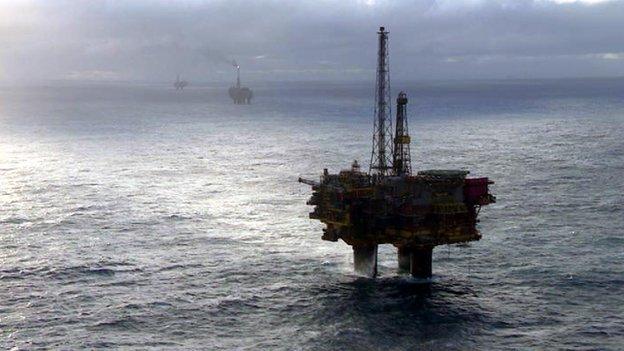Decommission planned for North Sea Brent oil field
- Published
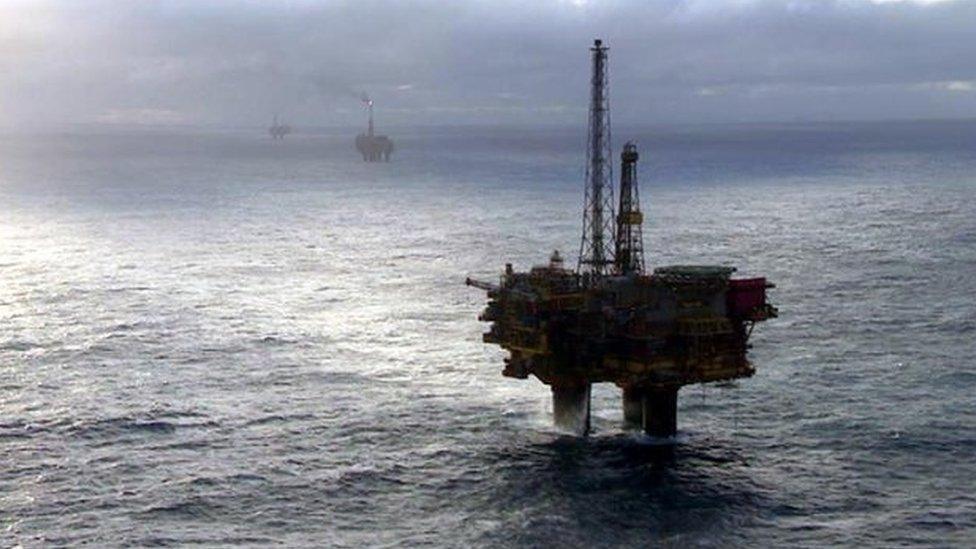
The top part of the Brent Delta platform will be taken away for scrap
Plans to decommission the Brent field in the North Sea have been lodged with the UK government.
Shell has already started decommissioning one platform but this new plan is for the whole field.
Brent is iconic because it lends its name to the benchmark of the North Sea, Brent Crude.
A £5m fund to help companies working in the oil and gas supply chain benefit from North Sea decommissioning has also been announced by Nicola Sturgeon.
The first minister launched the fund at Sparrows, an Aberdeen based supply chain company with expertise in decommissioning. Ms Sturgeon also visited exploration technology specialists Zilift Ltd.
The Decommissioning Challenge Fund will help pay for infrastructure upgrades at ports and harbours. It is also aimed at helping firms build business cases for private investment.
The first minister said: "With up to 20 billion barrels of oil and gas remaining, the Scottish government's top priority remains working with industry and stakeholders to maximise economic recovery from the North Sea.
"The new £5m fund also recognises that decommissioning is an emerging, but growing, activity in the North Sea, with £17.6bn expected to be spent in the North Sea over the next decade."
She added: "News today that Shell plans to apply to begin decommissioning its Brent oil field underlines the importance of planning for decommissioning."
In the next few months, the top portion of the Brent Delta platform is expected to be removed and taken away for scrap.
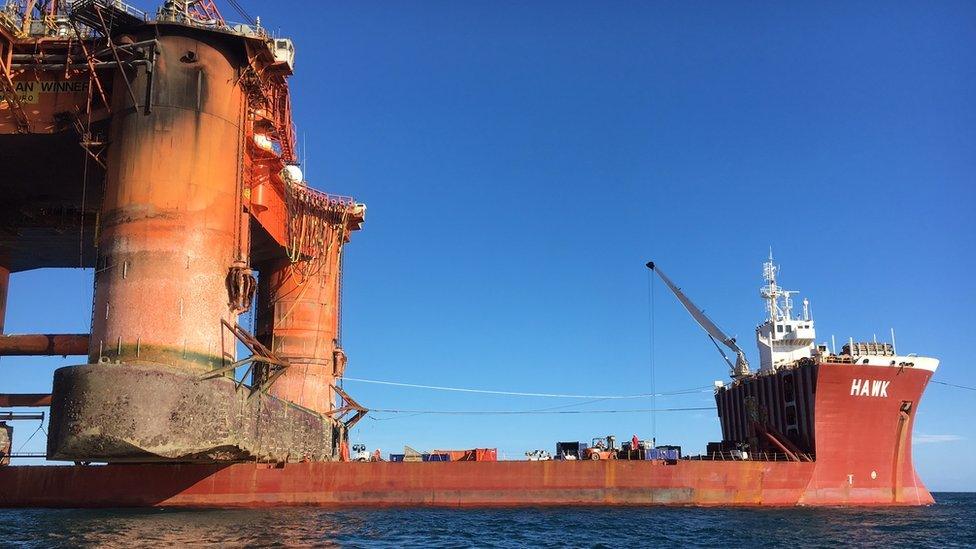
More than 100 platforms are expected to be completely or partially removed from the UK and Norwegian continental shelves in the next eight years
Plans for the rest of the infrastructure in the Brent field have been submitted to the UK government.
They are thought to include leaving the legs of some of the platforms in place rather than removing them - which Shell has described as the safest option.
That has caused concern among some environmental groups.
A 60-day consultation will now be launched before ministers decide whether to accept Shell's plans.
Oil and Gas UK has previously estimated that more than 100 platforms are expected to be completely or partially removed from the UK and Norwegian continental shelves by 2025.
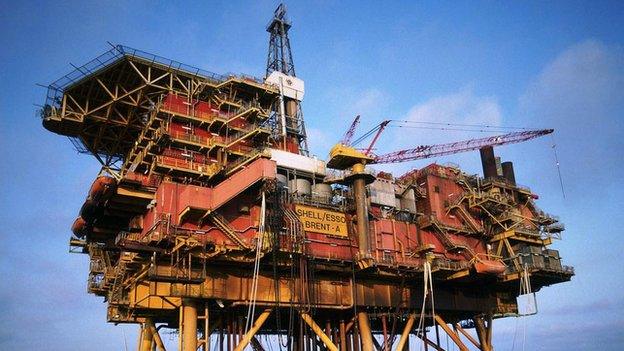
More than 1,800 wells are also scheduled to be plugged and abandoned and 7,500km of pipeline decommissioned.
Brent decommissioning asset manager Duncan Manning said: "After an extensive and in-depth study period, the submission of Shell's Brent decommissioning programme marks another important milestone in the history of the Brent oil and gas field.
"Shell has undertaken thorough analysis, extensive scientific research and detailed consultation with over 180 stakeholder organisations over the past 10 years.
"Working within the tightly defined regulatory process, we believe that our recommendations are safe, technically achievable, environmentally sound and financially responsible.
"Shell encourages all those with an interest in the decommissioning of the Brent field to review, reflect on and respond to this consultation document."

Analysis by Douglas Fraser, BBC Scotland business editor
Over the next 40 years, the bill for decommissioning in the North Sea is put at somewhere between £30bn and £50bn, depending how the costs and technology develop.
The costs could come in quite a bit lower if oil companies are allowed to leave large bits of equipment in the North Sea. Shell hopes to do that with three concrete storage bases on the seabed of the Brent field.
It's 22 years since the British-Dutch energy giant was badly stung by the Brent Spar campaign, run by Greenpeace to stop the ocean dumping of a particularly dirty bit of offshore kit. The industry learned from that. It can't afford to make that reputational error again.
That's why the Brent field decommissioning has taken 11 years of planning so far, with 300 studies carried out. Shell has been consulting widely, including talks with fishermen who may prefer to be left with visible hazards than the kind they can't see, under the water.

Lang Banks, of WWF Scotland, told BBC Scotland's Good Morning Scotland programme he would like to see any materials containing oil removed from the seabed.
"We should be aiming to set the highest possible benchmark for the rest of the industry to follow," he said.
"If we do it right, if we remove as much as we can, the great thing is we have an opportunity for this country to develop a multi-billion pound industry in decommissioning, not just in the North Sea but right around the world."
Deirdre Michie, chief executive of industry body Oil and Gas UK, said: "For more than 40 years, Brent has been a leading light in the UK's industrial success story, contributing almost 10% of the region's oil and gas, delivering billions of pounds to the UK economy and supporting tens of thousands of highly skilled jobs.
"Today's announcement opening the consultation for Shell's Brent Decommissioning Plan is another milestone in this story, broadening the reach of public stakeholder engagement that has already taken place, as this iconic field moves into the next stage of its lifecycle.
"Ground-breaking ingenuity was required to bring the Brent field, located in the deep waters of the northern North Sea, into production and these skills will be required into the future as industry seeks to maximise economic recovery of the UK's oil and gas alongside delivering decommissioning in a safe, environmentally responsible, and cost-efficient way."
- Published23 November 2016
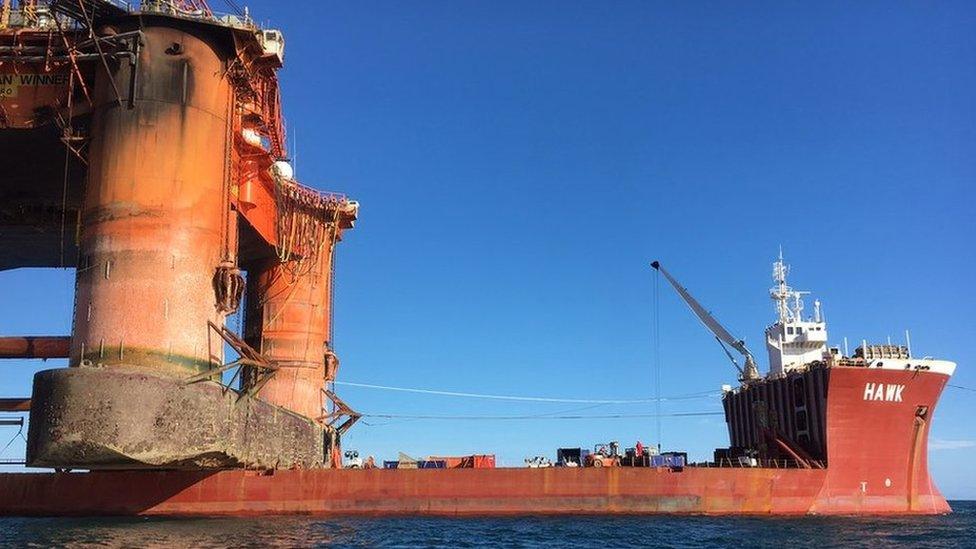
- Published21 November 2016
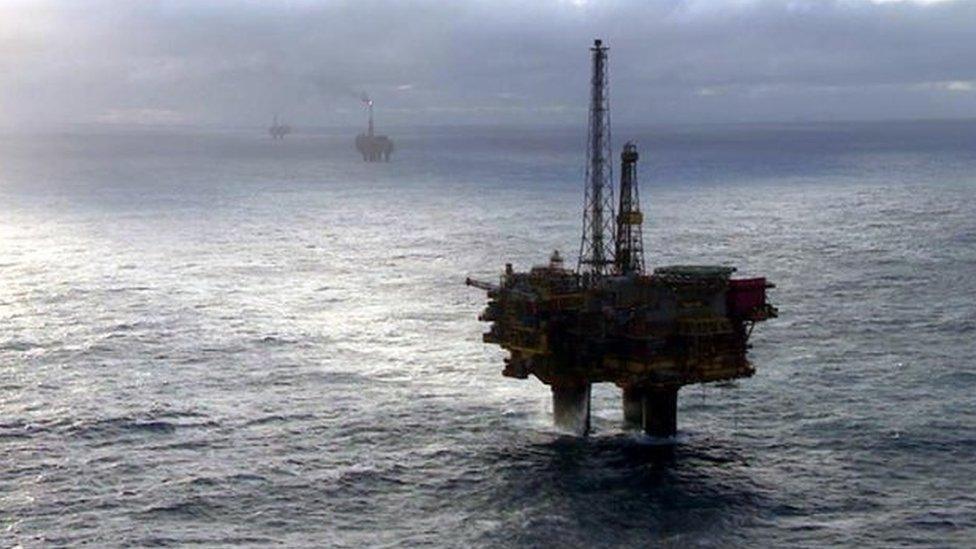
- Published29 September 2016

- Published31 August 2016
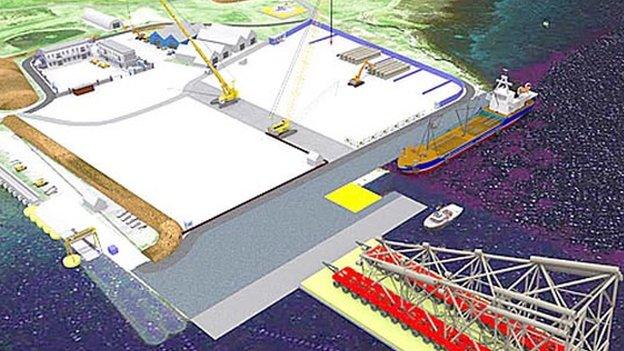
- Published28 May 2015
